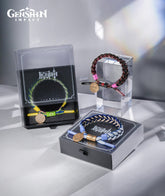Experience Different Cultures from “Fontaine” Place Names
This post is a brief compilation of some of the newer meanings of region names in Fontaine, and I do hope that travelers will find more whimsical ideas from the game designers. Let's take a look!
1. Court of Fontaine
Fontaine is a French word meaning fountain or natural spring or area of natural springs, and Court of Fontaine is taken from the famous French building Château de Fontainebleau, which means beautiful spring in French. Château de Fontainebleau is one of the largest royal palaces in France and has been used as a hunting palace for the kings of France since the twelfth century. The most beautiful part of the building is François I's gallery. The interior, with its numerous allegorical paintings, fruit decorations, garlands of colorful ribbons, and rich plasterwork and sculptures, is an example of French Renaissance art with an Italian touch.

Napoleon chose the Château de Fontainebleau as a monument to his empire and restored it after his victory. Pope Pius VII was imprisoned here by Napoleon from 1812 to 1814, when Napoleon was forced to sign away his throne and deliver his famous farewell speech to his legions.

2. Belleau Region
Parts of France are named after the word Belleau, such as the district of Belleau in the department of Aisne, the district of Belleau in the department of Meurthe-et-Moselle, in addition to which there is an Abbey of Belleau in the department of Marne, a branch of the Abbey of Molémonde.

3. Beryl Region
Beryl is a mineral composed of beryllium aluminum silicate, and famous varieties of beryl include emerald and aquamarine.

Naturally occurring hexagonal beryl crystals can be several meters in size, but crystals are relatively rare. Pure beryl is colorless but often colored by impurities. Beryl comes in green, blue, yellow, pink, and red. The main minerals are found in Austria, Germany, and Ireland in Europe; Madagascar in Africa; the Ural Mountains in Asia; and northwest China.

4. Marcotte Station
Marcotte is a French surname, originally from an Old French word, which can later refer to a grape grower or grape grower or directly to a vineyard, and as a surname is very common in rural France where vineyard grapes are grown.

5. Fontaine of Lucine
Lucine is derived from the Slavic name Ľubъkъ, which may refer to the early inhabitants of the Slavic language, and also in the game may refer to the second half of the harmonized form of Melusine in Fontaine.

6. Opera Epiclese
Epiclese derives from the ancient Greek ἐπίκλησις, referring to an invocation of a god or gods, which was used as a moniker for the surname of a deity in a religious context in ancient Greek religion. The term was later borrowed into the Christian tradition to refer to the portion of the Eucharistic prayer through which the priest invokes the Holy Spirit or the power of God's blessing on the sacramental bread and wine.

7. Elynas
Elynas refers to the name of the king who appears in medieval European folklore in the story of Melusine and is Melusine's father.

The story tells how, in the time of the Crusades, Elynas, the King of Albany, goes out hunting in the forest to cope with the death of his wife, with whom he has one son named Nathas. Elynas comes across the Well of Thirst, where he meets a beautiful fay named Pressine. The two fall in love, and when Elynas proposes to Pressine, she agrees, but only if he swears to never see her when she births or bathes their children; Elynas promises, and he and Pressine marry. Later, Pressine gives birth to triplet girls. When Nathas informs his father of the news, he breaks his promise. He breaks his promise, causing Pressine to leave the kingdom with their three daughters and move to the lost Isle of Avalon.
The three sisters, Melusine, Melior, and Palatine, grow up in Avalon, their mother bringing them atop a mountain every morning to look at the kingdom that would have been their home. On their fifteenth birthday, Melusine, the eldest, asks her mother why she and her sisters had been taken from Alba. Upon hearing of their father's broken promise, Melusine seeks revenge and convinces her sisters to aid her. Using their magical powers, Elynas' daughters lock him, with his riches, in a mountain called Brandelois. Pressine becomes enraged when she learns what her daughters have done, for despite breaking his promise, Elynas was her husband and the triplets' father. To punish her daughters for killing their own father, Pressine imprisons Palatine in the same mountain as Elynas, seals Melior inside a castle for all her life, and banishes Melusine, the instigator, from Avalon, also cursing her to take the form of a two-tailed serpent from the waist down every Saturday.

The distraught Count Raymondin of Poitiers comes across Melusine in forest after accidentally killing his uncle. Melusine consoles Raymondin and when he proposes to her, she lays down a condition just as her mother had done: that he must never see her on a Saturday. For ten years Raymondin keeps his promise, and Melusine bears him ten sons and organizes the construction of marvelous castles, giving her husband wealth, land, and power. However, Raymondin is eventually goaded by his family and grows suspicious of Melusine, always spending Saturday by herself and never attending Mass. He breaks his promise and peeks into her chamber, where he sees Melusine bathing in half-serpent form.
In front of his court, the grieving Raymondin blames Melusine and calls her a "serpent." She then assumes the form of a dragon, provides him with two magic rings, and flies off, never to be seen again. She returns only at night to nurse her two youngest children, who are still infants.
8. Poisson
Poisson means fish in French, and there are places in France named after it, such as a commune in the French department of Marne and a commune of Saône-et-Loire.

It is also possible that Poisson paid homage to Simeon-Denis Poisson, a French mathematician and physicist who worked on statistics, complex analysis, partial differential equations, calculus of variations, analytical mechanics, electricity and magnetism, thermodynamics, elastodynamics, and fluid mechanics. In addition, he predicted the Poisson point in his refutation of Augustin-Jean Fresnel's theory of fluctuations, which was later confirmed.
9. West Slopes of Mont Automnequi
It is possible that the prototype of the West Slopes of Mont Automnequi is a reference to Mont Blanc, located on the border of Haute-Savoie in France and Valle d'Aosta in Italy, which is both the highest peak in the Alps and also the highest peak in Western Europe.

10. Thalatta Submarine Canyon
Thalatta means sea, and there is a very classic slogan about this word: "Thalatta! Thalatta!" The slogan was the result of the efforts of 10,000 Greeks who were roaming the sea when they joined Cyrus the Great.
This slogan was the cheer of the roaming 10,000 Greeks who, after joining Cyrus the Great, saw the Black Sea from Mount Tychus in Trabzon. The mountain was only a five-day march from the friendly coastal city of Trapezus when Jagor's march into the Persian Empire failed in 401 B.C. Xenophon tells the story in his "Anabasis.".

It was about an hour before sunset that the proximity of the sea was announced by the sand dunes. A moment later—Θάλασσα! θάλασσα!—the blue waters of the Caspian became visible in the distance, and we were soon on the outskirts of the Kazian settlement.

11. Salacia Plain
In ancient Roman mythology, Salacia was worshipped as the goddess of the sea who ruled the depths of the ocean. In Greek mythology, Salacia's Greek name was Amphitrite, and she was also the wife of the sea king Poseidon. She personified the calm and sunny sea and was also used to denote the vast, open ocean.

Saracia is depicted as a beautiful nymph with a crown of seaweed on her head, either sitting next to Poseidon or driving with him in a pearl-shelled chariot pulled by dolphins, seahorses, or other magical creatures of the deep, and attended by Triton and Poseidon's men.

12. Elton Trench
Elton is one of the more common place names in the UK, and there are a number of villages in the UK named after it.

13. Annapausis

14. Debord
This Grand Hotel Debord may be a tribute to Guy Debord, a French thinker and director, an icon of Situationism, and one of the most important intellectual revolutionaries of the 20th century.

Debord is best known as the leader of a pioneering revolutionary movement and of the Situationist International, represented by the classic "La Société du Spectacle," which indicted consumerism in post-war capitalist society.
So that's all there is to know about the culture of Fontaine! As you can see, much of Fontaine comes from France, but there are other Western European characteristics as well. What impressed you most about Fontaine?


















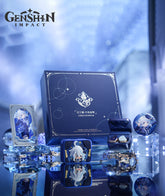
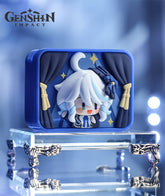


![[Official Merchandise] Genshin Impact Theme Vision Keychain Charm](http://genshinfans.com/cdn/shop/files/ZT01_4ff643a3-f4c7-4e69-949d-97312b5da85d_165x.jpg?v=1722241611)




![[Official Merchandise] Wanderer Scaramouche Cat Hanging Plush Toys](http://genshinfans.com/cdn/shop/files/zt-05_165x.jpg?v=1698818423)
![[Official Merchandise] Wanderer Scaramouche Cat Hanging Plush Toys](http://genshinfans.com/cdn/shop/files/zt-06_165x.jpg?v=1698818424)


![[Official Merchandise] Genshin Impact Slime Plush Toys](http://genshinfans.com/cdn/shop/products/ZT06_165x.jpg?v=1691978287)
![[Official Merchandise] Genshin Impact Slime Plush Toys](http://genshinfans.com/cdn/shop/files/ZT02_6137d7a6-4ee1-4a82-9495-4a12b1032ea2_165x.jpg?v=1691977956)
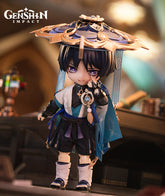
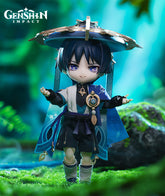
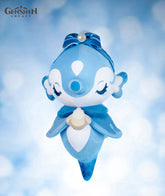

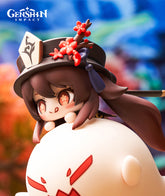
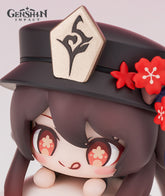
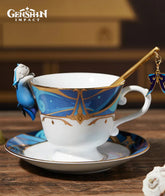
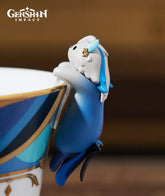
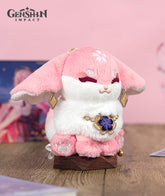
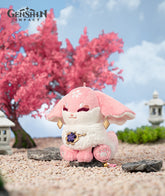





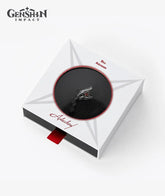
![[Official Merchandise] Arlecchino Impression Afternoon Tea Cup and Saucer Set](http://genshinfans.com/cdn/shop/files/Arlecchino-Impression-Afternoon-Tea-Cup_165x.jpg?v=1714383254)
![[Official Merchandise] Arlecchino Impression Afternoon Tea Cup and Saucer Set](http://genshinfans.com/cdn/shop/files/Arlecchino-Impression-Afternoon-Tea-Cup2_165x.jpg?v=1714383255)
![[Official Merchandise] Kaedehara Kazuha Impression Bracelet](http://genshinfans.com/cdn/shop/files/ZT02_cacb626a-33db-414d-aab1-63e59b0a0ba8_165x.jpg?v=1698747523)
![[Official Merchandise] Kaedehara Kazuha Impression Bracelet](http://genshinfans.com/cdn/shop/files/ZT04_79fecbdd-ac05-4a1a-9488-4814e86eeee1_165x.jpg?v=1698747523)

